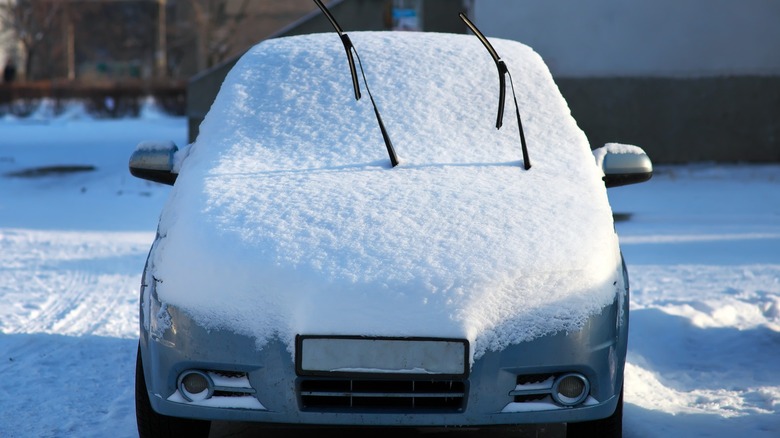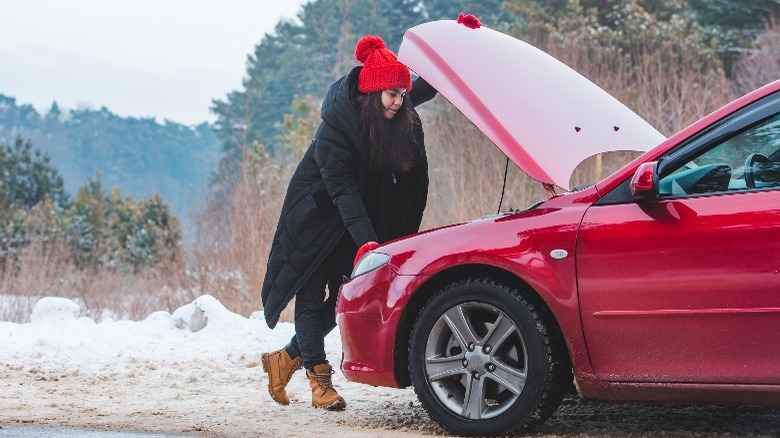Can Gas Freeze In Your Fuel Tank?
Technically, yes, gasoline can freeze in your fuel tank. But that's only in the way that technically any material can freeze. Gasoline is a mixture of several different compounds and chemicals, each with a different freezing point, so there's no one temperature you can pin specifically as gasoline's freezing point. Another variable is that there are several different types of gasoline mixtures, depending on the location, the refining method, the time of the year, and the octane rating. All of these make it hard to pinpoint what exact temperature you should worry about
However, an interview on the University of Illinois' website suggests that the cold might become a problem for the gasoline in your tank at around -40 to -50 degrees Fahrenheit. Although, several publications extend that range to -100 to -200 degrees Fahrenheit. Essentially, however these are almost impossible temperatures in most livable climates, and majority of people don't have to worry about it.
If the gasoline in your car ever reaches that point, it doesn't mean the entire tank will freeze. There are some hydrocarbons in the fuel that will crystallize and harden first. Think of these hydrocarbons like dish soap or hair cream freezing, it begins to coagulate and assume a waxy texture as more components crystallize. So, it'll likely only freeze partially.
What happens to your car in extremely cold temperatures?
When the temperature in your car's gas tank gets too low, the first thing that may cause problems in that part of the car is water. If there was some condensation or moisture in the car's fuel system, it might freeze up and clog fuel lines. In that case, you must wait for it to melt, or your car could stall or not start.
That's another reason we say it's a bad driving habit to leave your car with a low gas tank. A full tank leaves no room for condensation, and you can avoid the complications that can come with water's freezing point with some topping-up diligence. While some gasoline types already have anti-freeze in them, you could be extra careful and add some anti-freeze by pouring it into the gas tank.
But the real problem you should worry about in extreme cold is your car's battery. Around -40 degrees Fahrenheit, the electrolytes in your car's battery could freeze and damage it. Interestingly, the less charged your battery is, the higher the freezing point. Therefore, you should ensure your battery is charged in the cold, especially because car batteries are more likely to die in winter.

